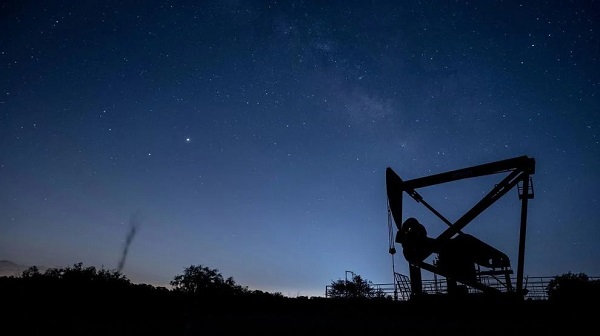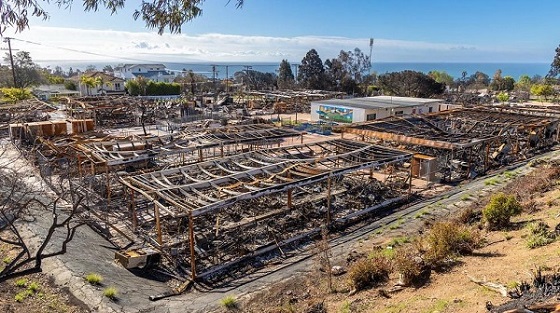Uncategorized
Pope accepts Washington cardinal’s resignation amid scandal

VATICAN CITY — Pope Francis accepted the resignation Friday of Washington Cardinal Donald Wuerl after he became entangled in two major sexual abuse and
But in a letter released by Wuerl’s office, Francis praised his longtime ally and suggested Wuerl had unfairly become a scapegoat, having made some “mistakes” in handling sex abuse cases, but not having covered them up.
With the resignation, Wuerl becomes the most prominent head to roll in the scandal roiling the Catholic Church after his predecessor as Washington archbishop, Theodore McCarrick, was forced to resign as cardinal over allegations he sexually abused at least two minors and adult seminarians.
A Vatican statement Friday said Francis had accepted Wuerl’s resignation, but named no replacement; in his letter, the pope asked him to stay on in a temporary capacity until a new archbishop is found.
The decision came after months in which Wuerl, who turns 78 in November, initially downplayed the scandal, insisted on his own good record, but then progressively came to the conclusion that he could no longer lead the archdiocese.
“The Holy Father’s decision to provide new leadership to the Archdiocese can allow all of the faithful, clergy, religious and lay, to focus on healing and the future,” Wuerl said in a statement Friday. “Once again for any past errors in judgment I apologize and ask for pardon.”
In his letter accepting the resignation, Francis said he recognized that in asking to retire, Wuerl had put the interests and unity of his flock ahead of his own ambitions, as all shepherds must do.
“You have sufficient elements to justify your actions and distinguish between what it means to cover up crimes or not to deal with problems, and to commit some mistakes,” Francis wrote. “However, your nobility has led you not to choose this way of
Wuerl had submitted his resignation to Francis nearly three years ago, when he turned 75, the normal retirement age for bishops. But Francis kept him on, as popes tend to do with able-bodied bishops who share their pastoral priorities.
But a grand jury report issued in August on rampant sex abuse in six Pennsylvania dioceses accused Wuerl of helping to protect some child-molesting priests while he was bishop of Pittsburgh from 1988 to 2006. Simultaneously, Wuerl faced widespread skepticism over his insistence that he knew nothing about years of alleged sexual misconduct by McCarrick.
Wuerl has not been charged with any wrongdoing but was named numerous times in the grand jury report, which details instances in which he allowed priests accused of misconduct to be reassigned or reinstated.
In one case cited in the report, Wuerl — acting on a doctor’s recommendation — enabled priest William O’Malley to return to active ministry as a canonical consultant in 1998 despite allegations of abuse lodged against him in the past and his own admission that he was sexually interested in adolescents. Years later, according to the report, six more people alleged that they were sexually assaulted by O’Malley, in some cases after he had been reinstated.
In another case, Wuerl returned a priest to active ministry in 1995 despite having received multiple complaints that the priest, George Zirwas, had molested boys in the late 1980s.
Wuerl apologized for the damage inflicted on the victims but also defended his efforts to combat clergy sex abuse.
His defenders have cited a case that surfaced in 1988, when a 19-year-old former seminarian, Tim Bendig, filed a lawsuit accusing a priest, Anthony Cipolla, of molesting him. Wuerl initially questioned Bendig’s account but later accepted it and moved to oust Cipolla from the priesthood. The Vatican’s highest court ordered Wuerl to restore Cipolla to priestly ministry, but Wuerl resisted and, after two years of legal procedures, prevailed in preventing Cipolla’s return.
“No bishop or cardinal in the nation has had a more consistent and courageous record than Donald Wuerl in addressing priestly sexual abuse,” contends Bill Donahue, president of the Catholic League.
Wuerl’s archdiocese issued a series of similar plaudits on Friday, coinciding with the Vatican announcement. They included a letter from the archdiocesan chancellor Kim Vitti Fiorentino, who lamented that Wuerl’s “pioneering leadership in the enhancement, implementation and enforcement of historically innovative child protection policies was overshadowed by the (Pennsylvania grand jury) report’s flaws and its interpretation by the media.”
A joint statement by Washington auxiliary bishops also praised Wuerl for his service and pastoral care and said his decision to step down was a “clear manifestation of his love and concern for the people of the archdiocese.”
The Rev. Thomas Reese, a Jesuit priest who writes for Religion News Service, described Wuerl as an ideological moderate.
“He was totally enthusiastic about John Paul II, and then Pope Benedict, and now he’s totally enthusiastic about Pope Francis,” Reese said. “There are not many people in the church who are totally enthusiastic about all three of them.”
Numerous conservative Catholic activists and commentators, though, considered him too tolerant of the LGBT community and too liberal on some other issues. They resented his pivotal role a decade ago in resisting a push by some of his fellow bishops to deny Communion to Catholic politicians who support the right to abortion.
Survivor advocate David Clohessy of the group SNAP said Wuerl’s “long-overdue” resignation might give solace to victims. But he said it would likely do little to deter others in the hierarchy from covering up for abusers.
“But if archaic, predatory-friendly laws were reformed and if more prosecutors showed real courage, these complicit clerics might face criminal charges, and that might make a real difference,” he said in a statement.
Wuerl was born in Pittsburgh, attended Catholic University in Washington and received a doctorate in theology from the University of Saint Thomas in Rome. He joined the priesthood in 1966, was ordained a bishop by Pope John Paul II in 1986, and served briefly as auxiliary bishop in Seattle before going to Pittsburgh.
___
Crary reported from New York.
David Crary And Nicole Winfield, The Associated Press
Uncategorized
CNN’s Shock Climate Polling Data Reinforces Trump’s Energy Agenda


From the Daily Caller News Foundation
As the Trump administration and Republican-controlled Congress move aggressively to roll back the climate alarm-driven energy policies of the Biden presidency, proponents of climate change theory have ramped up their scare tactics in hopes of shifting public opinion in their favor.
But CNN’s energetic polling analyst, the irrepressible Harry Enten, says those tactics aren’t working. Indeed, Enten points out the climate alarm messaging which has permeated every nook and cranny of American society for at least 25 years now has failed to move the public opinion needle even a smidgen since 2000.
Appearing on the cable channel’s “CNN News Central” program with host John Berman Thursday, Enten cited polling data showing that just 40% of U.S. citizens are “afraid” of climate change. That is the same percentage who gave a similar answer in 2000.
Dear Readers:
As a nonprofit, we are dependent on the generosity of our readers.
Please consider making a small donation of any amount here.
Thank you!
Enten’s own report is an example of this fealty. Saying the findings “kind of boggles the mind,” Enten emphasized the fact that, despite all the media hysteria that takes place in the wake of any weather disaster or wildfire, an even lower percentage of Americans are concerned such events might impact them personally.
“In 2006, it was 38%,” Enten says of the percentage who are even “sometimes worried” about being hit by a natural disaster, and adds, “Look at where we are now in 2025. It’s 32%, 38% to 32%. The number’s actually gone down.”
In terms of all adults who worry that a major disaster might hit their own hometown, Enten notes that just 17% admit to such a concern. Even among Democrats, whose party has been the major proponent of climate alarm theory in the U.S., the percentage is a paltry 27%.
While Enten and Berman both appear to be shocked by these findings, they really aren’t surprising. Enten himself notes that climate concerns have never been a driving issue in electoral politics in his conclusion, when Berman points out, “People might think it’s an issue, but clearly not a driving issue when people go to the polls.”
“That’s exactly right,” Enten says, adding, “They may worry about in the abstract, but when it comes to their own lives, they don’t worry.”
This reality of public opinion is a major reason why President Donald Trump and his key cabinet officials have felt free to mount their aggressive push to end any remaining notion that a government-subsidized ‘energy transition’ from oil, gas, and coal to renewables and electric vehicles is happening in the U.S. It is also a big reason why congressional Republicans included language in the One Big Beautiful Bill Act to phase out subsidies for those alternative energy technologies.
It is key to understand that the administration’s reprioritization of energy and climate policies goes well beyond just rolling back the Biden policies. EPA Administrator Lee Zeldin is working on plans to revoke the 2010 endangerment finding related to greenhouse gases which served as the foundation for most of the Obama climate agenda as well.
If that plan can survive the inevitable court challenges, then Trump’s ambitions will only accelerate. Last year’s elimination of the Chevron Deference by the Supreme Court increases the chances of that happening. Ultimately, by the end of 2028, it will be almost as if the Obama and Biden presidencies never happened.
The reality here is that, with such a low percentage of voters expressing concerns about any of this, Trump and congressional Republicans will pay little or no political price for moving in this direction. Thus, unless the polls change radically, the policy direction will remain the same.
David Blackmon is an energy writer and consultant based in Texas. He spent 40 years in the oil and gas business, where he specialized in public policy and communications.
Uncategorized
Kananaskis G7 meeting the right setting for U.S. and Canada to reassert energy ties


Energy security, resilience and affordability have long been protected by a continentally integrated energy sector.
The G7 summit in Kananaskis, Alberta, offers a key platform to reassert how North American energy cooperation has made the U.S. and Canada stronger, according to a joint statement from The Heritage Foundation, the foremost American conservative think tank, and MEI, a pan-Canadian research and educational policy organization.
“Energy cooperation between Canada, Mexico and the United States is vital for the Western World’s energy security,” says Diana Furchtgott-Roth, director of the Center for Energy, Climate and Environment and the Herbert and Joyce Morgan Fellow at the Heritage Foundation, and one of America’s most prominent energy experts. “Both President Trump and Prime Minister Carney share energy as a key priority for their respective administrations.
She added, “The G7 should embrace energy abundance by cooperating and committing to a rapid expansion of energy infrastructure. Members should commit to streamlined permitting, including a one-stop shop permitting and environmental review process, to unleash the capital investment necessary to make energy abundance a reality.”
North America’s energy industry is continentally integrated, benefitting from a blend of U.S. light crude oil and Mexican and Canadian heavy crude oil that keeps the continent’s refineries running smoothly.
Each day, Canada exports 2.8 million barrels of oil to the United States.
These get refined into gasoline, diesel and other higher value-added products that furnish the U.S. market with reliable and affordable energy, as well as exported to other countries, including some 780,000 barrels per day of finished products that get exported to Canada and 1.08 million barrels per day to Mexico.
A similar situation occurs with natural gas, where Canada ships 8.7 billion cubic feet of natural gas per day to the United States through a continental network of pipelines.
This gets consumed by U.S. households, as well as transformed into liquefied natural gas products, of which the United States exports 11.5 billion cubic feet per day, mostly from ports in Louisiana, Texas and Maryland.
“The abundance and complementarity of Canada and the United States’ energy resources have made both nations more prosperous and more secure in their supply,” says Daniel Dufort, president and CEO of the MEI. “Both countries stand to reduce dependence on Chinese and Russian energy by expanding their pipeline networks – the United States to the East and Canada to the West – to supply their European and Asian allies in an increasingly turbulent world.”
Under this scenario, Europe would buy more high-value light oil from the U.S., whose domestic needs would be back-stopped by lower-priced heavy oil imports from Canada, whereas Asia would consume more LNG from Canada, diminishing China and Russia’s economic and strategic leverage over it.
* * *
The MEI is an independent public policy think tank with offices in Montreal, Ottawa, and Calgary. Through its publications, media appearances, and advisory services to policymakers, the MEI stimulates public policy debate and reforms based on sound economics and entrepreneurship.
As the nation’s largest, most broadly supported conservative research and educational institution, The Heritage Foundation has been leading the American conservative movement since our founding in 1973. The Heritage Foundation reaches more than 10 million members, advocates, and concerned Americans every day with information on critical issues facing America.
-

 Business1 day ago
Business1 day agoTruckers see pay surge as ICE sweeps illegal drivers off U.S. highways
-

 International1 day ago
International1 day agoHamas releases all living hostages under Trump peace plan
-
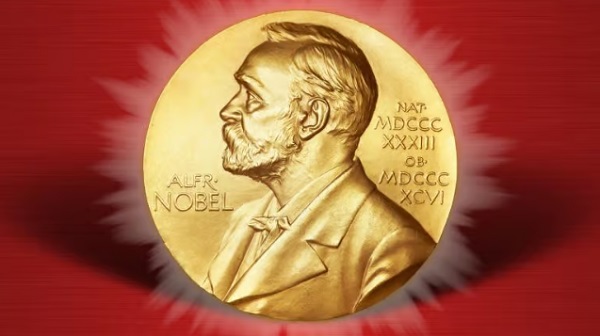
 Brownstone Institute1 day ago
Brownstone Institute1 day agoTrump Covets the Nobel Peace Prize
-

 Business1 day ago
Business1 day agoNetherlands Seizes Chinese-Owned Chipmaker in Unprecedented Security Move
-

 COVID-192 days ago
COVID-192 days agoThe Trials of Liberty: What the Truckers Taught Canada About Power and Protest
-

 Business1 day ago
Business1 day agoUN, Gates Foundation push for digital ID across 50 nations by 2028
-
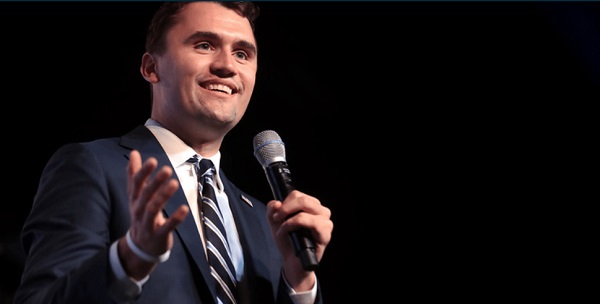
 C2C Journal1 day ago
C2C Journal1 day agoCharlie Kirk and the Fragility of Civic Peace
-
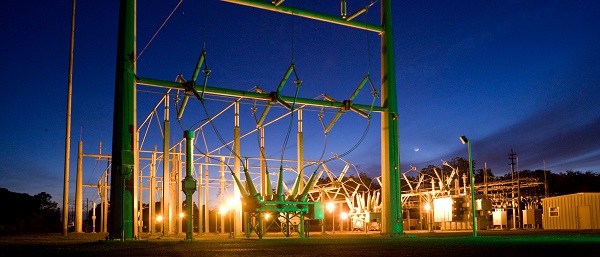
 Business18 hours ago
Business18 hours agoFinance Titans May Have Found Trojan Horse For ‘Climate Mandates’
